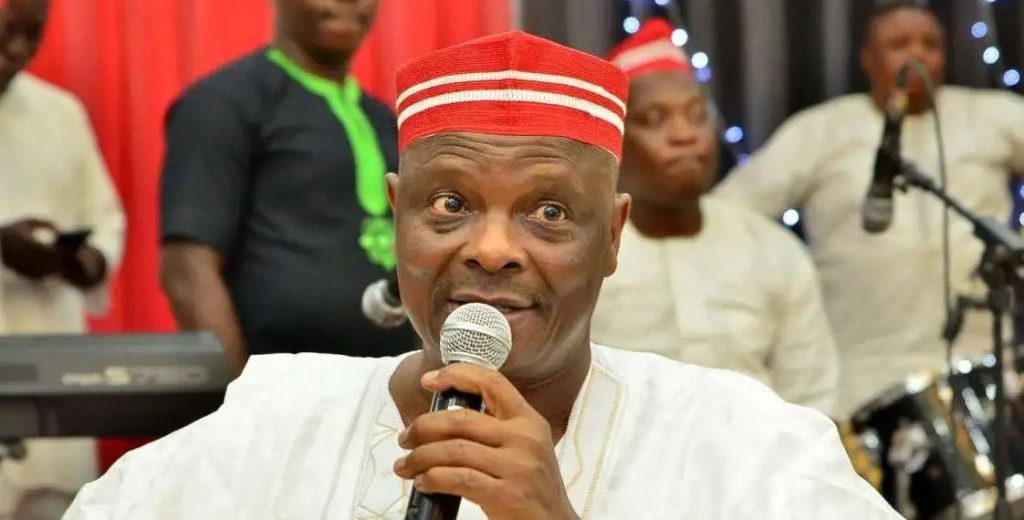Rabiu Kwankwaso, the national leader of the New Nigeria People’s Party (NNPP), recently delivered a scathing critique of the Peoples Democratic Party (PDP), branding it a “dead party” during the NNPP’s National Executive Committee meeting in Kano. He underscored the party’s decline, stating that it has faced multiple internal fractures and challenges that have caused it to “implode.” Kwankwaso also directed his discontent toward the ruling All Progressives Congress (APC), arguing that it has become detached from the pressing concerns of Nigerian citizens, including rising insecurity, widespread poverty, and chronic hunger. He emphasized the urgency of addressing these issues, which have become increasingly apparent in the lives of ordinary Nigerians, asserting that the current leadership has failed to resonate with the real problems facing the populace.
Despite the difficulties faced by the NNPP, Kwankwaso expressed optimism regarding its growth trajectory, hailing it as the fastest-growing political movement in Nigeria. He took the opportunity to thank party supporters for their unwavering dedication and commitment, suggesting that the NNPP represents a promising alternative on Nigeria’s political scene. His remarks highlighted a growing confidence among party members, as they aim to position the NNPP as a viable contender against the established parties. Kwankwaso’s assertion follows a pattern of critiques aimed at the PDP, implying that many within that party have begun to recognize its deteriorating status as a viable political force.
Kwankwaso recounted a visit to Katsina State where he had previously predicted the decline of the PDP. He remarked that the party’s present fragmentation validates his earlier statement regarding its ineffectiveness. He urged party members to take note of the political landscape and the shifting dynamics, especially in relation to the PDP’s inability to maintain cohesion. Referring to the APC, Kwankwaso emphasized that its leadership exists in a state of disconnect, failing to understand or address the prevailing issues of insecurity, poverty, and hunger that many Nigerians are currently facing. He argued that this disconnection undermines the credibility of the APC and its governance.
The concerns voiced by Kwankwaso were echoed by the NNPP National Chairman, Dr. Ajuji Ahmed, who called on Nigerians to prioritize collective action and unity in building a better future. This reiteration underscores the importance placed on cooperation among citizens to facilitate the party’s aspirations for political change. Moreover, the National Secretary, Dipo Olayoku, encouraged party members to actively engage in local government elections. This call to action aims to enhance the party’s visibility and strengthen democracy within local frameworks. Olayoku’s encouragement reflects a strategic approach to grassroots engagement and a focus on local governance as a critical area of participation for the NNPP.
Furthermore, Olayoku provided an update on the party’s organizational structure, noting that the last National Executive Committee meeting held in April 2024 ratified key changes such as a new constitution, logo, slogan, and flag. These updates align with the NNPP’s internal regulations and comply with the guidelines set forth by the Electoral Act and the Independent National Electoral Commission. The ratification process signifies the party’s commitment to adhering to legal standards and positioning itself as a serious contender in Nigeria’s political landscape.
In summary, the NNPP, under the leadership of Rabiu Kwankwaso, is positioning itself as a dynamic alternative to the traditional parties in Nigeria amidst a climate of dissatisfaction with the ruling and opposing parties. By emphasizing its growth, fostering grassroots participation in local elections, and updating its organizational framework, the NNPP aims to galvanize support and instigate political change in response to Nigeria’s pressing socio-economic challenges. This pragmatic strategy is crucial in addressing the needs of the electorate and restoring a sense of hope in the political process as citizens grapple with ongoing issues of security, poverty, and hunger.














